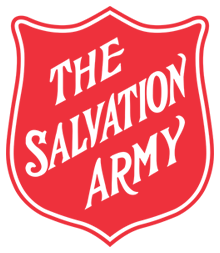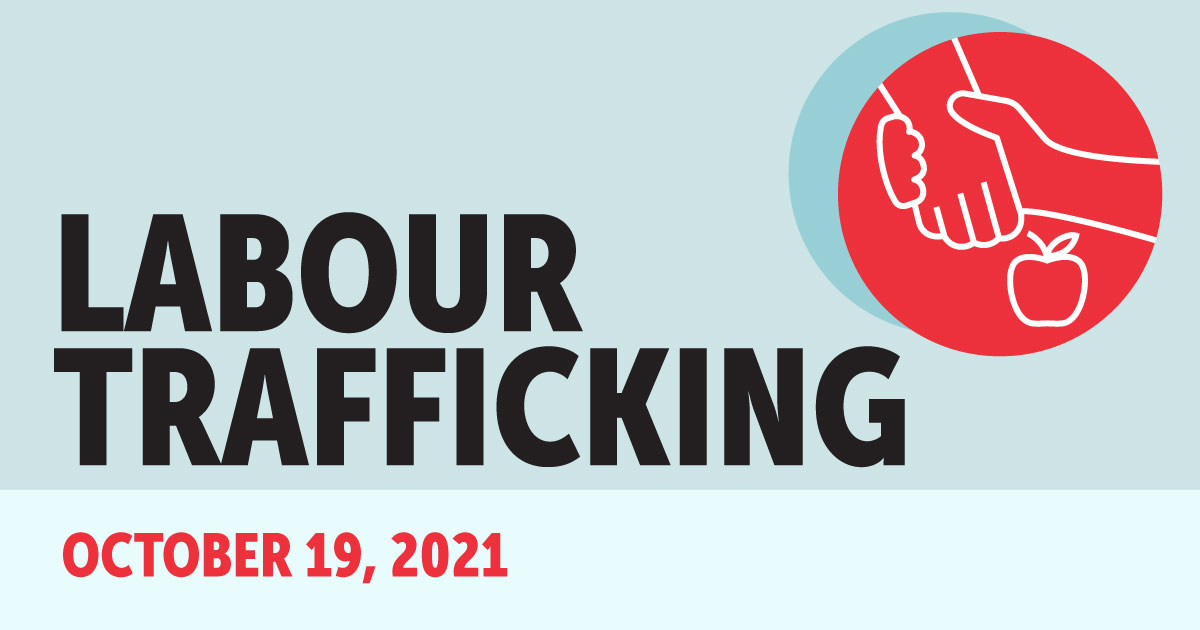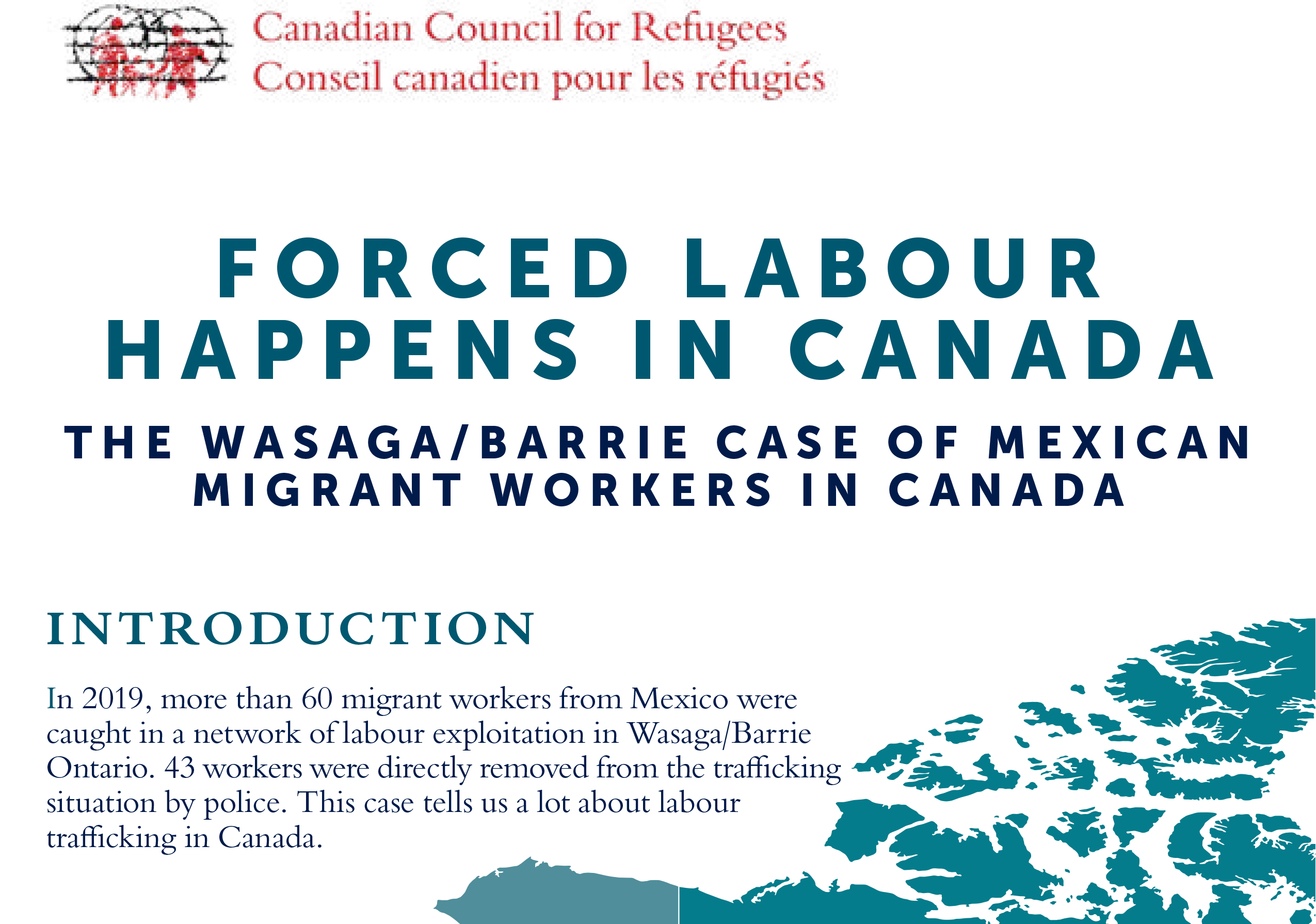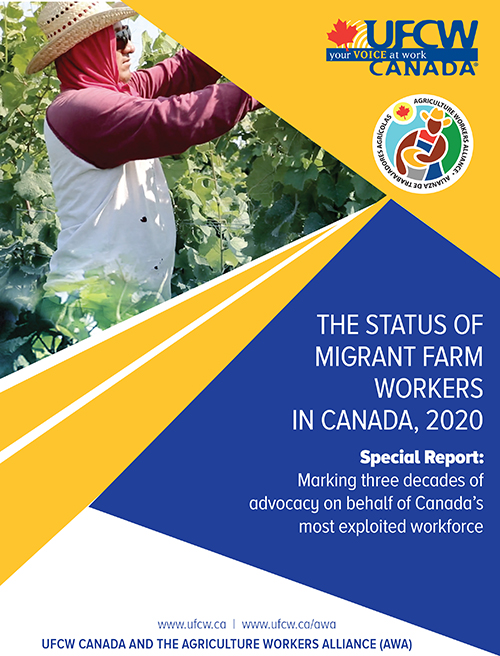Labour Trafficking - Key Points and Ideas:
The Temporary Foreign Workers Program (TFWP) is divided into high-skilled and low-skilled categories. In the low-skilled category (where the abuses most often happen) there are three streams:
- Live-in Caregiver Program
- Bring workers to take care of children, elderly or persons with disabilities
- Training, experience and language proficiency required.
- Closed work permit that binds a worker exclusively to one employer
- Pathway to permanent residence with conditions
- Temporary Foreign Worker Program (TFWP)
- Up to 48 months (4-year in 4-year out rule)
- Closed work permit that binds a worker exclusively to one employer
- No training, experience or language proficiency required
- No realistic pathway to permanent residence
- Seasonal Agricultural Worker Program (SAWP)
- Up to 8 months in a year
- Closed work permit that binds a worker exclusively to one employer.
- No access to permanent residency
Why the migrant worker program makes workers vulnerable to human trafficking?
- Recruitment: Metcalf foundation calls it the “Baseline of Precariousness”. Migrant workers are willing to come accepting low-wage position as many come from poor backgrounds and / or paid a recruitment fee resulting in debt bondage. This is prohibited by law but there is no monitoring from government.
- Work permits are tied to a single employer: This increases the workers’ vulnerability as it places the migrant worker in a position where they cannot simply look for a better employer if they are treated abusively. Staying in the workplace and in Canada depends on the verdict and willingness of the employer.
- Employers are required to provide housing for their employees exposing them to sub-standard living conditions, exploitation in private households, long working hours with little/no pay; constant monitoring, no privacy, documents withheld, threats and emotional/physical abuse. This is made permissible as there is minimal or no program monitoring.
- Isolation: The farms are located in remote areas where migrant workers need employers to transport them to towns for shopping and errands.
- Language barrier: Language proficiency is not a requirement to come to work in Canada.
- Lack of access to services: Migrant workers cannot use settlement services funded by the Canadian government.
- There is no system for monitoring and enforcing the terms of the program.
Not all the employers are bad, but employment experiences relying on luck.
What can we do?
- No Canadian citizen is obliged to report anyone to immigration
- If you suspect human trafficking, report it. You do not need to be certain!
- Call Canadian National Human Trafficking Hotline at 1-833-900-1010
- Call 911 ONLY if someone is at immediate risk.
Labour Trafficking - Additional Resources
ARTICLES
Hungry for Change – Article by Angelica Hernandez
Read Here
Forced Labour Happens in Canada: The Wasaga / Barrie Case of Mexican Migrant Workers in Canada
The Status of Migrant Farm Workers in Canada, 2020: Special Report
Migrant farm workers and the cruel trade-off at your local produce aisle
Read Here
Know the Chain: Creates companies’ reports on forced labor abuses within their supply chains
https://knowthechain.org/
VIDEO
Hidden in Plain Sight: Labour Trafficking and Migrant Workers in Canada
NGO WEBSITES:
Migrant Worker Health Project
https://www.migrantworker.ca/
Organizations Supporting Migrant Agricultural Workers
https://www.migrantworker.ca/for-migrant-workers/organizations/
City of Toronto Undocumented Residents Day August 24
https://www.fcjrefugeecentre.org/2021/08/undocumented-residents-day/
The Coalition of Immokalee Workers’ (CIW) Fair Food Program - is a unique partnership among farmers, farmworkers, and retail food companies that ensures humane wages and working conditions for the workers who pick fruits and vegetables on participating farms. It harnesses the power of consumer demand to give farmworkers a voice in the decisions that affect their lives, and to eliminate the longstanding abuses that have plagued agriculture for generations.
To learn more about this, visit
https://www.fairfoodprogram.org/
Fair Food Program Annual Report – 2017
Download PDF
Fair Food Program Annual Report – 2018
Download PDF
SAMPLE LETTER TO MP
https://harvestingfreedom.org/2020/05/07/petition-tell-the-ontario-government-farmworkers-need-urgent-protections/
SLAVERY FOOTPRINT SURVEY
Made In A Free World: Learn how many Slaves Work for You
http://slaveryfootprint.org









